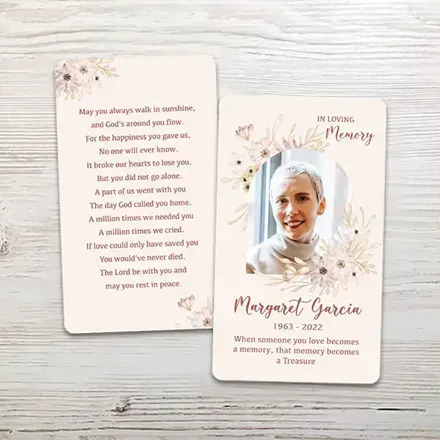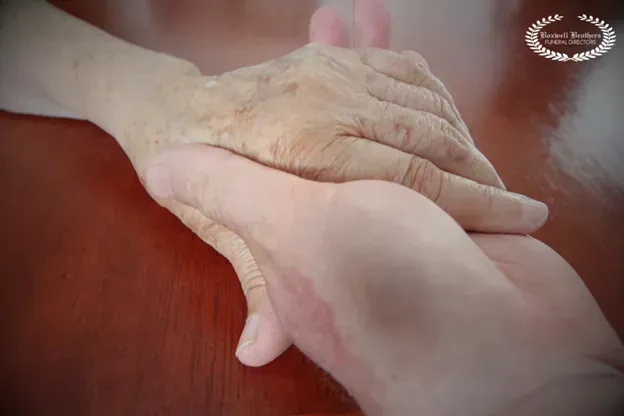How to Write a Meaningful Obituary: A Step-by-Step Guide
Creating an obituary is a thoughtful way to honor a loved one’s life and legacy. This guide will help you write a respectful and meaningful obituary that provides essential information while celebrating their life. Whether you’re writing it yourself or assisting a friend, following these steps can make the process simpler and more heartfelt.
1. Understand the Purpose of an Obituary
An obituary serves as more than just a death announcement. It’s an opportunity to share details about the deceased’s life, achievements, and impact on their family and community. It should also provide essential information about funeral arrangements and memorial services.
2. Start with the Basics
The first section of an obituary should include key factual details. Answer the basic questions: Who, What, When, Where, and Why.
Information to Include:
● Full Name: Include the deceased’s full name and, if applicable, their maiden name.
● Age: State their age at the time of death.
● Date and Place of Death: Clearly indicate when and where they passed.
● Funeral or Memorial Details: Provide specifics about services, including location, date, and time.
Example:
“John Henry Smith, 74, of Amarillo, Texas, passed away peacefully on October 20, 2024, at BSA Hospital. A celebration of life service will take place at Boxwell Brothers Funeral Home on October 25, 2024, at 2 p.m.”

3. Share Biographical Details
This section is where the deceased’s story comes to life. Highlight milestones, achievements, and the qualities that defined them. Collaborate with family members to ensure all details are accurate.
Include:
● Birth Information: Date and place of birth.
● Education: Schools attended and notable academic achievements.
● Career: Key accomplishments or milestones in their professional life.
● Hobbies and Interests: Meaningful passions or pastimes.
● Legacy: Highlight their contributions to family, friends, and the community.
Example:
“Born in Amarillo, Texas, on May 3, 1950, John graduated from Lamar University with a degree in Business Administration. He spent over 40 years as a respected banker and was known for his dedication to clients and community. John loved fishing, volunteering at the local food bank, and cherishing time with his grandchildren.”

4. Recognize Surviving Family Members
Including the names of surviving family members honors their relationships with the deceased. This section also informs readers about the loved ones left behind.
Suggested Structure:
● Spouse: Name of the surviving spouse, if applicable.
● Children: Names of children (and spouses, if relevant).
● Grandchildren: Names or a general mention of grandchildren.
● Siblings: Include siblings and other close family members.
Example:
“John was preceded in death by his wife, Mary. He is survived by his children, Sarah Thompson (James) and Michael Smith (Olivia), and his four grandchildren: Emily, Noah, Ava, and Jack.”

5. Express Personal Tributes
Use this section to share what made the deceased unique. Highlight their personality, values, and favorite sayings or habits.
Example:
“John will be remembered for his kindness, unwavering integrity, and love for his family. His laughter and wisdom were gifts to everyone who knew him.”

6. Memorial Contributions Information
Families often suggest donations to a charity in lieu of flowers. If applicable, provide clear instructions for readers who wish to contribute.
Example:
“In lieu of flowers, the family requests donations to the Springfield Food Bank, where John volunteered for many years.”

7. Conclude with Funeral Arrangements and Contact Details
Restate funeral or memorial details and include contact information for condolences or inquiries.
Example:
“Friends and family are invited to Boxwell Brothers Funeral Home on October 25, 2024, at 2 p.m. For more information or to send condolences, please visit our website.”

8. Tips for Writing a Respectful Obituary
● Keep It Concise: Aim for 200–300 words, depending on publication guidelines.
● Use a Respectful Tone: Maintain a dignified and warm tone throughout.
● Verify Accuracy: Double-check names, dates, and details for correctness.
● Personalize It: Include unique details that truly capture the essence of the deceased.

Writing an obituary is a meaningful way to honor a loved one’s life and legacy. By including essential details and personal touches, you can create a tribute that celebrates their story and shares their impact with others.











